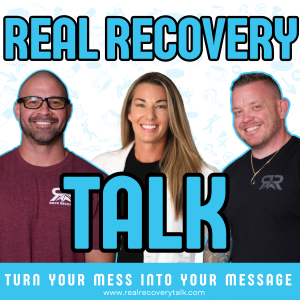
In honor of Memorial Day, I would like to thank everyone in the armed services for all they've done for us, and all they continue to do for us to keep us safe. A lot of people think about getting into treatment, but they have no idea where to start. They have no clue about what resources are available or what resources would be best for them.
The whole process can be confusing. Today's episode is about clearing up that confusion. I'm going to talk about how to get to treatment, what are the best treatments for you, and by the end of the episode, you should have a good idea what the process is like and how to move forward.
Show Notes:
[04:45] One of the hardest hurdles to get over is admitting that you have a problem, if you are looking for treatment, you've gotten over that hurdle and understand that you have an issue. [05:00] There are different types of treatments like detox, residential, intensive outpatient, intensive inpatient, and outpatient. These are all different names for different levels of care. They all encompass teaching you how to stay sober. [05:27] Sobriety is the byproduct of figuring out what causes us to use in the first place. There is a therapeutic process for this, and you can really only get it in treatment. [06:18] Treatment also provides you with a safe place to be. You have a community of people around you that are struggling with the same things and have the same goal in mind. [08:17] Where you go to treatment usually depends on the resources that you have. If you have health insurance, you can go to treatment almost anywhere in the US depending on your benefits. [09:07] If you have a medicaid plan, there are state funded providers that you can go to. There are also state funded places and the Salvation Army for people with no medical plan at all. [10:14] If you have the resources to go to a private treatment center, do that. I hate to say it, but you do get what you pay for. [10:27] Private treatment centers have the ability to have better treatment options. Employees at private treatment centers are paid well. They went to school for their profession and love helping people and love what they do. Many of them are also professional counselors. [11:18] If you love what you do, you'll never work a day in your life. This is the case with a lot of the people at the private treatment centers. [11:36] If you don't have the resources, a state-funded place will do the job. [11:48] Getting sober really lies within the person. If you want help, you will get it one way or another. [12:31] You can interview a treatment center. Have a list of questions. One of the things about sales is that you have to know your product. [14:12] Ask about the location? Is it conducive for employment? How many people are in the groups? Are the therapists licensed? How long have they been doing this? Don't go overboard. Time isn't on your side with addiction. [15:12] Get your basic questions answered and get there. [15:40] Set clear cut boundaries with your loved ones. You need to focus on yourself. Outside influence should be limited. [17:12] Going out of town for treatment can be uncomfortable, but it can also be the best thing. [17:49] Being able to go somewhere for 60, 90, and 120 days is an opportunity to create a solid foundation for your sobriety. [18:43] Don't let your family dictate where you can go for treatment. [19:19] Going somewhere unfamiliar is another opportunity for you to grow. [20:16] Local rehabs can be tied in with surrounding places like employment opportunities. [21:02] Drug addicts and alcoholics can be very productive people once they get sober. [22:38] Staying local keeps you in your comfort zone, your stomping grounds, and you know where you can get drugs. [23:26] State run places can also be harder to get into, because they have a waiting list. [23:55] Smaller treatment centers can also have a waiting list. They give more personalized care. [24:55] Options are out there whether you have private health insurance or no money at all. It's just a matter of seeking help. [26:29] It's amazing what people can do once they decide to get sober. Don't get stuck in hopelessness, because you don't have the right support or health insurance. [27:32] If you reach out enough, you will find the help that you need.Links and Resources:
Alcoholics Anonymous Al-Anon Salvation Army Faith Farm Dunklin Treatment CenterMore Episodes
012345678910111213141516171819
Create your
podcast in
minutes
- Full-featured podcast site
- Unlimited storage and bandwidth
- Comprehensive podcast stats
- Distribute to Apple Podcasts, Spotify, and more
- Make money with your podcast
It is Free
- Privacy Policy
- Cookie Policy
- Terms of Use
- Consent Preferences
- Copyright © 2015-2024 Podbean.com






